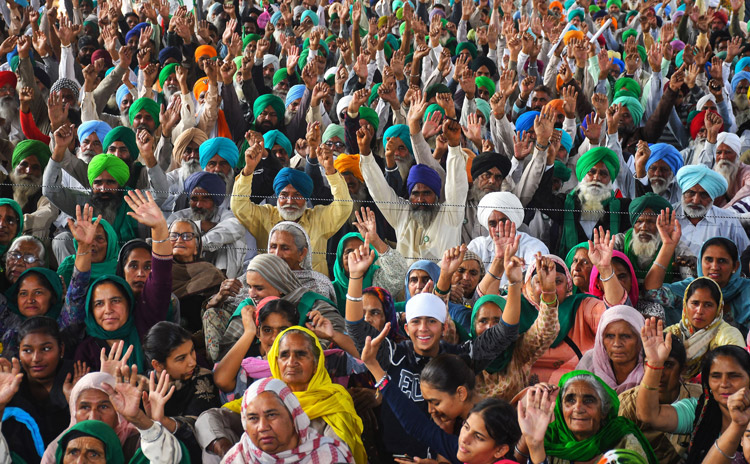Farmers meeting at the Gazipur protest encampment outside India’s capital, New Delhi, Nov. 26 celebrate after their massive yearlong mobilizations were victorious, forcing Prime Minister Narendra Modi to rescind new agricultural laws that threatened their livelihoods. These laws would have removed state-backed minimum price protections on staple grains and open up toilers on the land to greater exploitation by agricultural capitalists.
Indian farmers “don’t trust Modi,” Kulpreet Singh told this Militant reporter Nov. 27 in New York’s Times Square at the end of a victory car caravan. The 29-year-old immigrant worker, whose family has farmed for generations in India’s Punjab state, said the farmers are “not going back until this is finalized.”
Two days later, the Indian rulers hastily pushed a bill through the two houses of Parliament scrapping the laws. They were rushing to try to demobilize one of the biggest challenges to their “modernizing” drive since Modi’s Hindu nationalist government came to power in 2014.
In the past year up to 2 million farmers, mostly from the grain belt states of Punjab, Haryana and Uttar Pradesh, have taken part in the huge tent “cities” set up on highways leading into the Indian capital. While the Modi government will now keep the state-controlled pricing levels on wheat, rice and other staple grains, many farmers are pushing to extend this to cover other crops. They are also demanding compensation to the families of over 750 farmers who lost their lives during the protests.


